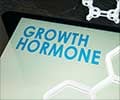A new study has determined that cows that receive recombinant Bovine Somatotropin (rbST) make more milk, all the while easing natural resource pressure and substantially reducing environmental impact.
Cows that receive recombinant Bovine Somatotropin (rbST) make more milk, thus easing natural resource pressure and also reducing environmental impact, a new study has said.
Researchers at University Of Cornell carried out the study.Producing milk uses large quantities of land, energy and feed, but rbST, the first biotech product used on American farms, has been in agricultural use for nearly 15 years.
Now, it is found to reduce the carbon hoofprint by easing energy, land and nutritional inputs necessary to sustain milk production at levels sufficient to meet demand.
This research found that, compared to a non-supplemented population, giving rbST to one million cows would enable the same amount of milk to be produced using 157,000 fewer cows.
The nutrient savings would be 491,000 metric tons of corn, 158,000 metric tons of soybeans, and total feedstuffs would be reduced by 2,300,000 metric tons.
Producers could reduce cropland use by 219,000 hectares and reduce 2.3 million tons of soil erosion annually.
Advertisement
For every one million cows supplemented with rbST, the reduction in the carbon footprint is equivalent to removing approximately 400,000 family cars from the road or planting 300 million trees.
Advertisement
According to Dale E. Bauman, Cornell professor of animal science, "This study demonstrates that use of rbST markedly improves the efficiency of milk production, mitigates environmental impact including greenhouse gas emissions and reduces natural resource requirements such as fossil fuel, water and land use."
Source-ANI
RAS/M









